2025.02.04
JICA’s Knowledge Co-Creation Programme “Climate Finance”: A Bridge to the Future for Developing Countries
OECC is responsible for planning and organising the JICA’s Knowledge Co-Creation Programme (Capacity Development programme), Enhancing Access to Climate Finance – Theory and Practice for Practitioners. This programme involves 14 participants from 13 countries, including Ethiopia, Cameroon, Kyrgyzstan, the Cook Islands, Kenya, Tuvalu, Jamaica, Sri Lanka, Nepal, Pakistan, Palestine, Bangladesh, and Fiji. It offers a comprehensive learning experience through lectures delivered by professionals in various climate change fields, visits to view Japan’s cutting-edge technologies, and practical exercises, such as developing action plans and GCF concept notes. The aim is to enable participants to contribute to creating sustainable societies through effective use of climate finance, bridging theory and practice.
OECC’s Role
OECC plays a key role in designing the training curriculum, coordinating the lecturers, and providing individual support to the participants. It also enhances the quality of the programme by offering hands-on training tailored to practical applications, equipping participants with the know-how needed to utilise climate finance effectively in real-world scenarios.
Before the offline programme in Japan that started on January 14, a three-week online programme was conducted from early December. This programme provided participants with an opportunity to learn about topics such as the history of international climate negotiations, climate finance under the United Nations Framework Convention on Climate Change (UNFCCC), an overview of the Green Climate Fund (GCF), and nature-based solutions (NbS).
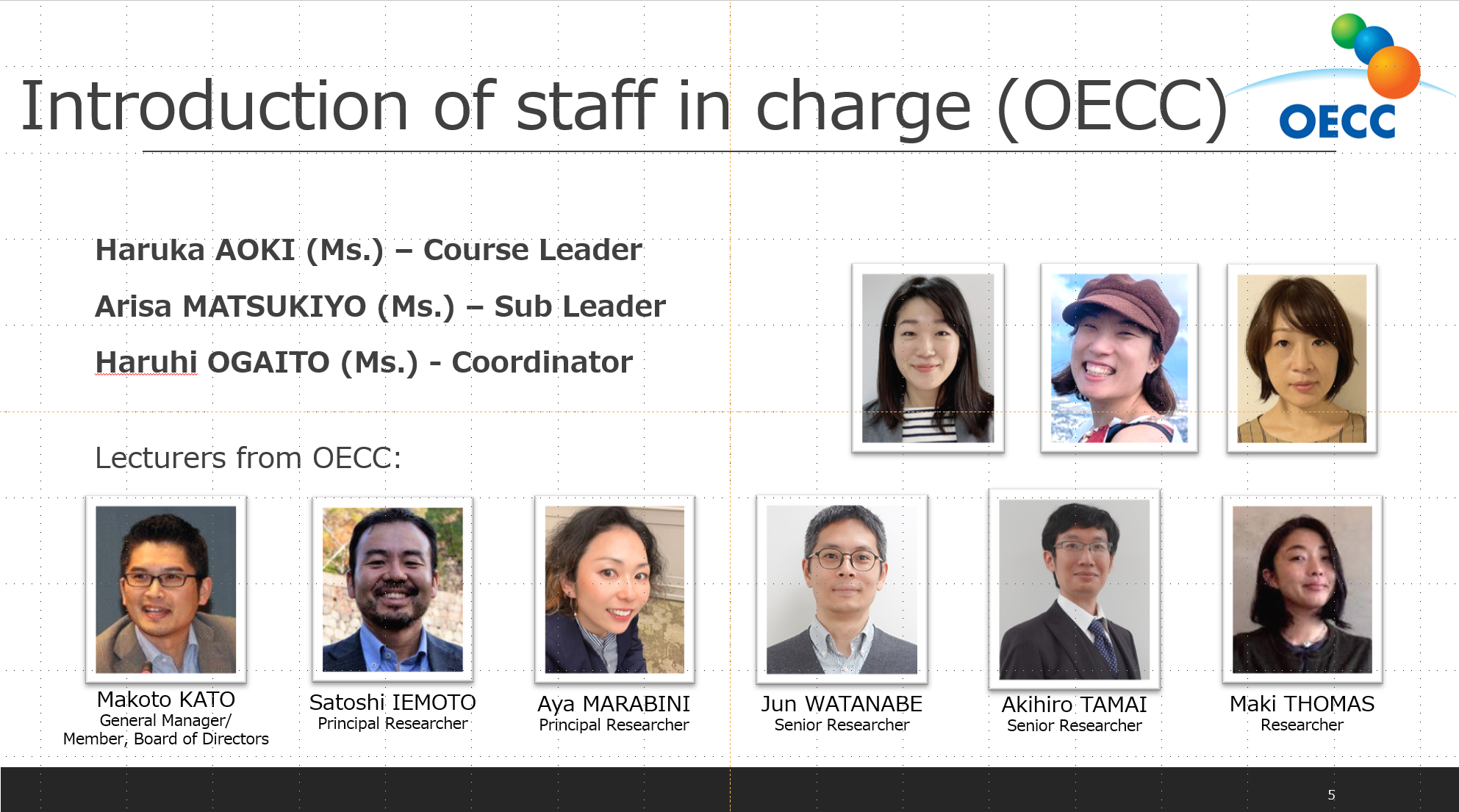
Week 1 of the Training: Rich in Theory and Practice
The first week of the training in Japan covered foundational topics, such as understanding climate finance mechanisms like the GCF, case studies from JICA’s GCF projects, and the core concepts of Project Cycle Management (PCM). These topics were explored through workshops, allowing participants to deepen their knowledge of climate finance and project formulation.
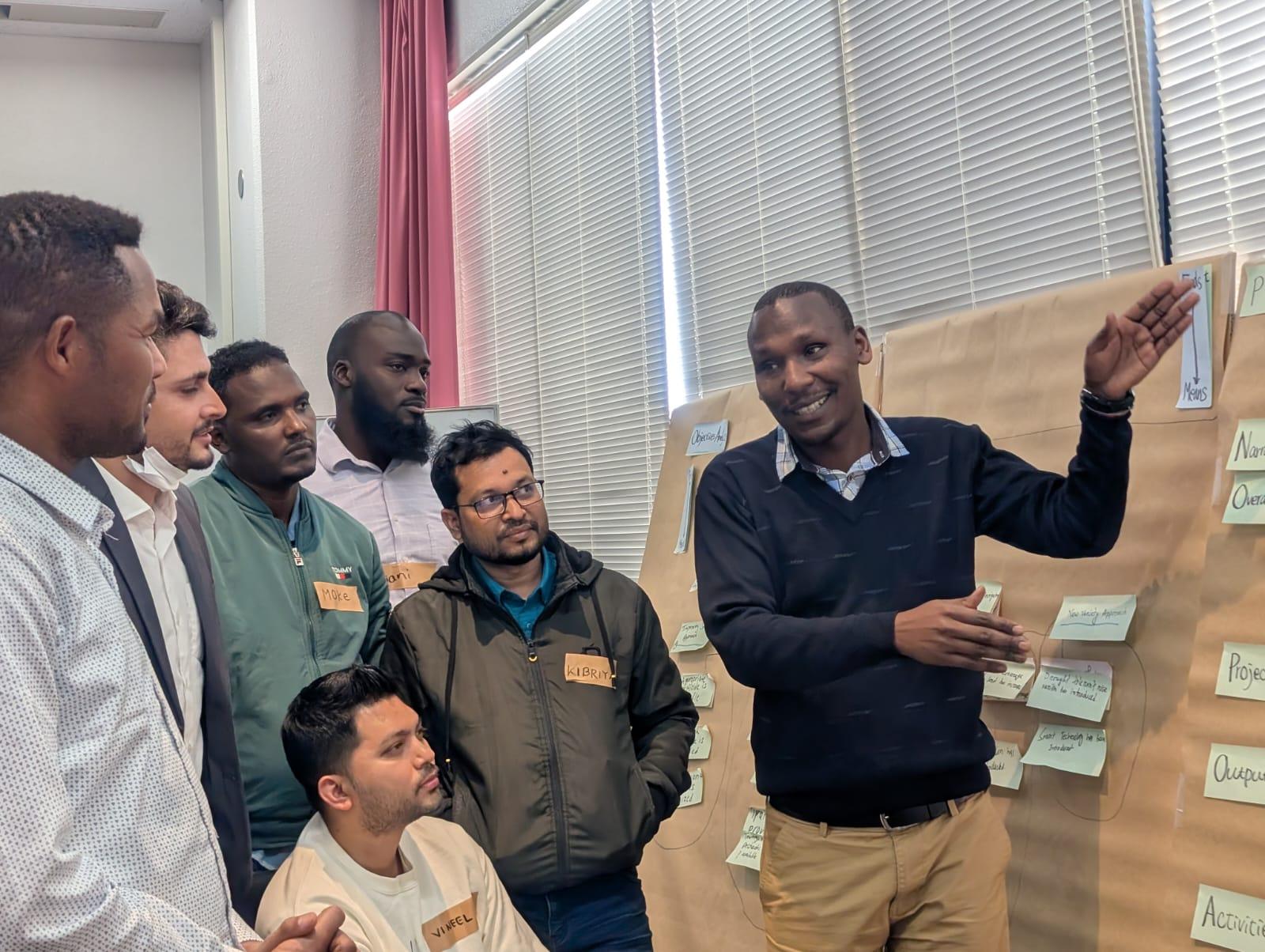
Introduction to Programme Structure and Climate Finance Strategies
The programme commenced with an introduction to its overall structure and objectives, followed by a lecture from JICA’s Global Environment Department. This lecture detailed JICA’s climate change strategies and the process of forming projects utilising the GCF. Participants actively engaged with questions, gaining a solid understanding of the material. Additionally, a session led a lecturer from the GCF Secretariat, covered the specific steps and key points for funding applications, laying the groundwork for the training ahead.
Case Studies on GCF Utilisation and Regional Climate Initiatives
On the second day, experts from Nippon Koei presented case studies on GCF utilisation in Timor-Leste and the Maldives. These practical examples of project formulation sparked many questions from participants and provided valuable insights.
Furthermore, Saitama City Hall, a member municipality of OECC, shared the city’s Zero Carbon City initiative and its city-to-city collaboration project with Kuala Lumpur. This lecture offered participants the opportunity to compare international perspectives with practical regional efforts in addressing climate change.
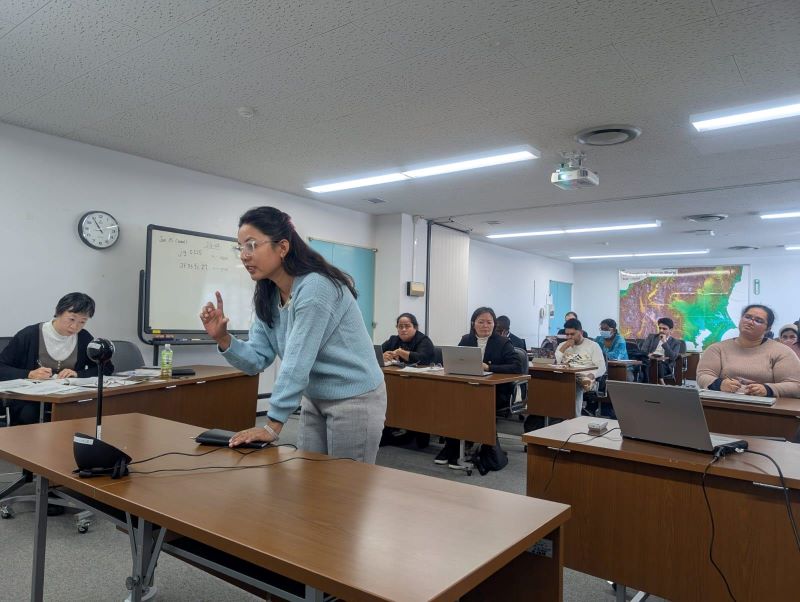
Alumni Insights: Action Plans and Practical Applications
Two alumni from last year’s programme, who are now continuing their studies at Japanese universities, visited JICA Tsukuba to share their experiences. They presented the action plan themes they developed during the training and discussed how the programme has supported their practical work. Mr. Shukrullo from Tajikistan presented his early warning system development plan, while Mr. Atana from Cameroon introduced strategies for reducing greenhouse gas emissions in rice cultivation.
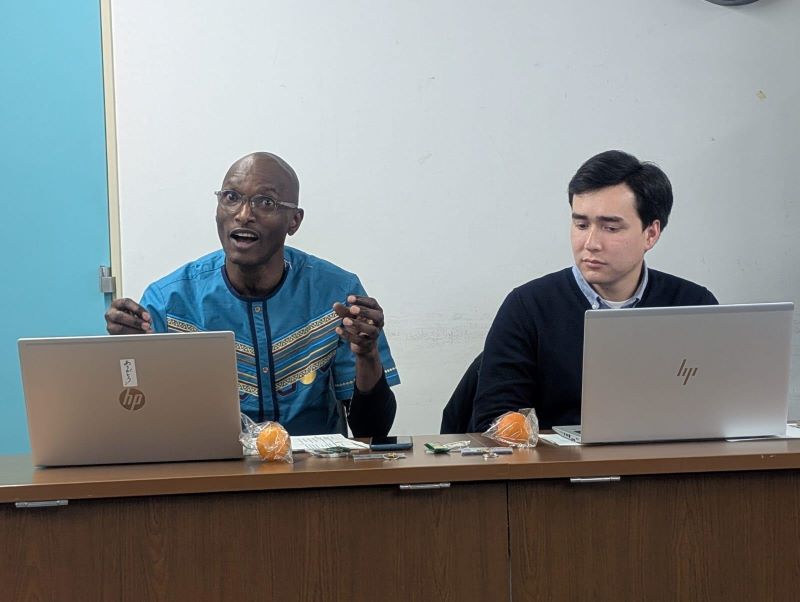
PCM Workshop and Practical Exercises
In the latter half of the first week, a two-day workshop facilitated by IC-Net was held, during which participants deepened their understanding of Project Cycle Management (PCM). This PCM approach is incorporated into many JICA projects. In order to obtain climate finance, which is the main objective of this training, it will be necessary to be able to create a logical project plan that clearly sets out the issues, objectives and results. The aim of this programme is to lay the foundations for creating an effective project by using a logical framework to create a logical plan, and working with stakeholders to create a proposal that is convincing to funders.Divided into two groups, participants engaged in exercises from problem analysis to objective analysis, project selection, and the creation of a Project Design Matrix (PDM).
Mr Atana and Mr Shukrullo said the day before that the PCM session was one of the most useful for formulating an action plan, so the participants were very motivated and enthusiastic during this session.
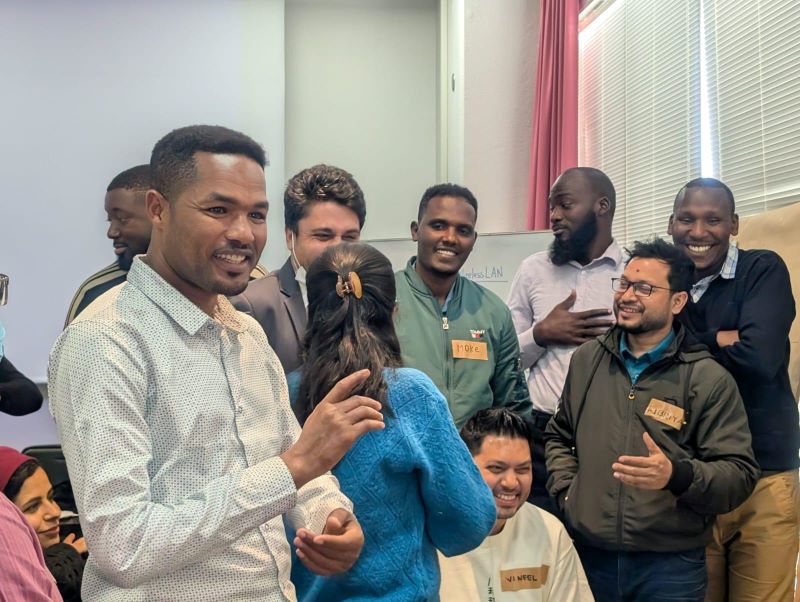
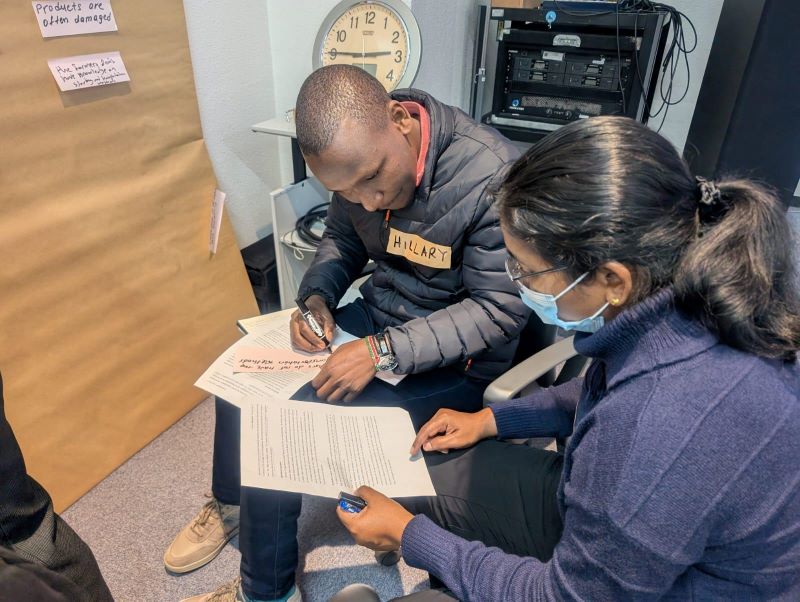
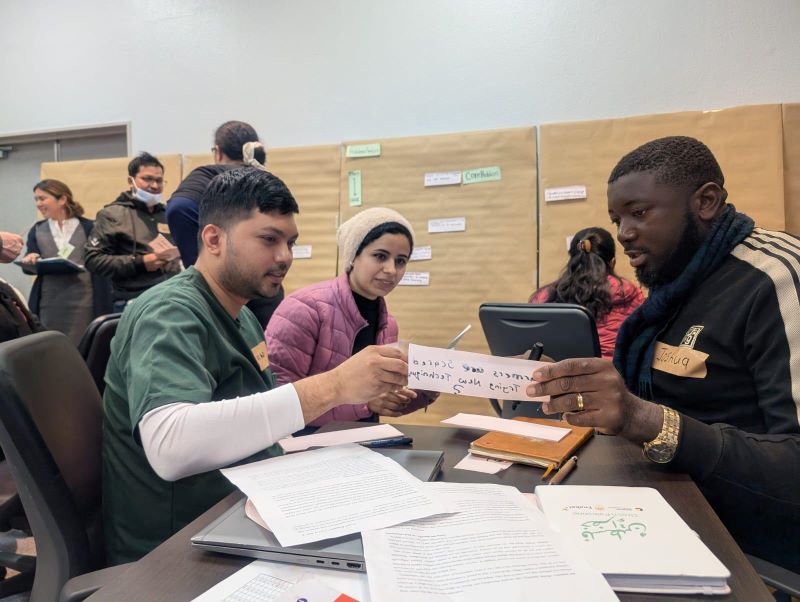
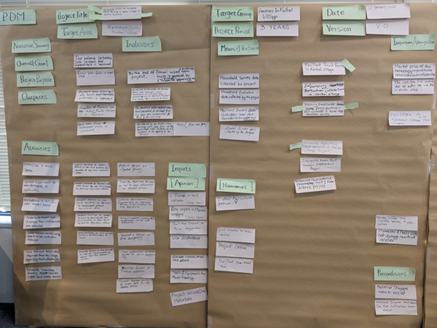
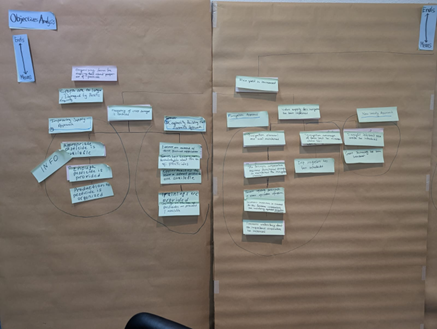
The offline training in Japan will continue until early February, with lectures and site visits running in parallel. Participants are currently working on problem analysis using PCM methods in preparation for the presentation of their final outputs (action plans) on the last day. OECC will continue to provide support to ensure participants can deliver satisfying results during the final presentation on the 10th of February.
We’ll keep posting updates through training reports, so stay tuned!
And LinkedIn (Follow us!) :


